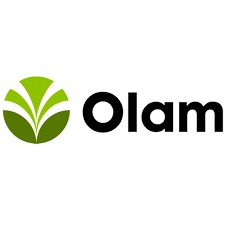Crown Flour Mill Limited (CFM), the wheat milling firm and a subsidiary of Olam Nigeria, has invested in a development initiative in local wheat production tagged ‘Seeds for the Future’. The initiative is being implemented in partnership with the Lake Chad Research Institute (LCRI).
It is estimated that the Seeds for the Future project will engage at least 10,000 farmers per year as seed multiplicators who will cultivate about 100,000 ha of land with the high-yielding seed varieties by 2030.
- 24 to win scholarship as forum urges Nigeria to up games on Mathematics deficiency
- Emir of Kano, others tax BUK mass comm alumni on development
The project is estimated to generate about 200,000 tons of seeds for multiplication and commercialization which according to Ashish Pande, Managing Director CFM, will generate revenue and returns which will directly impact the lives of the farmers and the cooperatives engaged in the project.
The initiative is structured to utilize the expansive capacities of local researchers and the network of smallholder women farmers in cooperative unions to achieve its objectives.
An estimated 10 female smallholder wheat farmer cooperative unions that are made up of at least 10 women each would be engaged in a seed trialing, multiplication and commercialization cycle. The testing for the best bet seed varieties that suit local climatic conditions has begun. Each women’s cooperative union will be provided with one ton of the certified seeds to cultivate. The seed would further be multiplied along a well-guided cycle to ensure steady multiplication across the village enterprises or female associations.
The yield of the wheat crop is generally limited by high temperatures, climatic and soil conditions hence the need to develop adaptable high-yielding seed varieties that suit the ecosystem.
High-yielding and adaptable seed varieties have overriding advantages over normal seeds. They have better adaptation quality for targeted soil and climatic conditions. They are immune to diseases and provide healthy and surplus crops that can meet the needs of a growing market.
When these seeds are cultivated on a large scale by an extensive number of smallholder farmers with effective irrigation systems and fertilizer, a nation can very easily be transformed into a regional or global food basket.

 Join Daily Trust WhatsApp Community For Quick Access To News and Happenings Around You.
Join Daily Trust WhatsApp Community For Quick Access To News and Happenings Around You.


